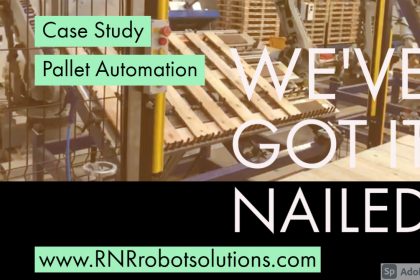The preliminary results of the 2019 World Robotics Report paints a sobering picture for the British manufacturing sector and prompts us to ask the critical question: is Britain falling behind our global competitors? The report looks at the density of robots by region, with Europe having the highest level worldwide and 5 European countries in the top 10. Britain ranks 22nd – and year-on-year figures show a worrying trend. In 2017, industrial robot sales grew by 31%, yet 2018 saw a fall of 3%.
Mike Wilson, chair of the British Automation and Robot Association said “The UK has been adding robot automation at a lower rate than our main competitors in all manufacturing sectors outside of automotive.” Even this sector is under severe pressure now, with the number of cars built in the UK in April almost half of that rolling off the production lines a year ago. Whilst many factories brought forward their summer closure in the anticipation of potential supply chain problems, April was the 11th straight month of decline.
It is not just the automotive sector that causes concern as UK productivity across the board continues to under-perform. The final quarter of 2018 showed another year-on-year fall, only marginally of 0.1%, but the overall trend is in the wrong direction. The Office for National Statistics points out that labour productivity was lower over the past decade than at any time in the 20th Century.
“Increasing automation is a key driver in improving productivity”, says Liz Reid, MD of RNR Robot Solutions. “Take the first raspberry picking robot as an example – each robot will be able to pick over 25,000 raspberries a day, whereas a human can pick about 15,000 in an 8 hour shift.”
“What concerns me most”, continued Liz, “is that businesses may be missing out on critical financial support which can help them become more efficient. The Government recently announced an increase in the Annual Investment Allowance, but many companies who could potentially benefit seem to be missing out”.
The AIA has been temporarily increased to enable faster tax relief for plant and machinery investments between £200k and £1 million, in a measure designed to help businesses invest and grow. A recent survey found that only 42% of engineering and manufacturing firms were even aware of the increase, and only 16% were planning a significant increase in their investment as a result of the rise in the AIA.
“At a time when British manufacturing is in danger of falling behind our global competitors”, said Liz, “it’s critical that they make the most of all opportunities to help them invest and grow”.
Find out more about reducing your tax bill whilst improving your productivity here and here.









